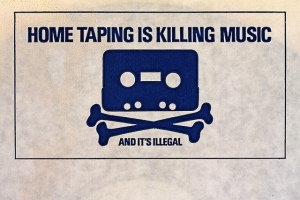 I’ve had a worrying experience with a local book club. I’m not sure it is as it appears, so I won’t name names. But either way, it raises worrying questions about the way authors’ work is valued.
I’ve had a worrying experience with a local book club. I’m not sure it is as it appears, so I won’t name names. But either way, it raises worrying questions about the way authors’ work is valued.
Recently, a book club invited me to make a presentation about Lifeform Three. The club voted to read it. The organiser went out of the room. Ten minutes later she returned. The books were ordered, she said! So quick. Everyone went home happy.
Except. I should have seen seven UK sales within 24 hours but there was only one. An ebook. Being indie, I know the local bookshops don’t have that many copies. Also, cheap second-hand copies on Amazon are scarce. Did the club just pretend they were going to read it?
It was sweet of them to spare my blushes. And I couldn’t exactly ask.
I shrugged it off. But this week I was talking to an author friend. She said she’d had the same puzzling situation, several times. She said that local book clubs had contacted her because they were reading one of her titles. They asked her questions about the text. But she saw no corresponding rise in UK sales. Like me, she knows local shops don’t have that many copies. The libraries don’t stock her books. Secondhand copies are in short supply. Each time a book club takes up one of her titles, she sees just one UK sale – one ebook.
It seems to be a pattern.
Finally, she said, she found the answer. She said that one club admitted that it buys one ebook and shares it among all its members. Could they be passing one copy between them all? Unlikely as they all needed to read it at once. She strongly suspected they were making duplicates.
Was this also the explanation for my book club experience? I saw just one sale, remember.
I asked. I was told: ‘We mostly get our books through Amazon, and often from the second-hand sellers. I like to read a real book and don’t have a Kindle’. So be it.
But why was I ready to believe villainy?
Because it fits a bigger picture. Because I frequently meet people who think piracy, file copying and illegal downloading hurts nobody. They say it’s a ‘victimless’ crime. They defend their right to do it. These are people in well-paid jobs, BTW.
What harm can it do? Let’s illustrate that by giving book clubs a fair hearing. Let’s show the good that just one group can – and does – do for an author’s reputation and sustainability and why we appreciate them so much.
Imagine if one club orders seven copies in a store. That puts the author in the store owner’s good books. If they’re bought online it spreads beneficial juice through the chart algorithms. Just seven copies can make a real impression. Many clubs are a lot bigger.
You might think traditionally published authors don’t have to worry as much because they’re funded by the publisher, but if the book doesn’t gain traction, the publisher drops the author.
So a book club is not only putting money where it deserves to be. It is doing a lot of good for that author’s long-term career. Thank you, BTW.
Money, money, money
I’m sorry to mention money so much, but I think this is one of the stumbling blocks. How many times have you had to explain to non-authors that books have not made you steaming rich?
Indeed, I wonder if we’ve helped create that impression? All these carefree pictures of authors signing heaps of books in crowded bookstores; holding launches in front of appreciative audiences.
Films and TV are even worse. I’ve seen LitHub articles that laugh at the kind of blissful artistic life that moviemakers think is the norm for writers.
Of course we like to share our highlights, but the public is getting an erroneous message that we’re all living the dream in a utopia of wordy fulfilment. So what’s a lost sale? Or 10?
We’ve failed to emphasise how much of an impact lost sales and piracy have (thanks for the pic Leo Reynolds on Flickr).
Selling ourselves too cheaply?
And obviously the freebie culture hasn’t helped – that’s a rot we can’t reverse. Neither have subscription services, where content is an all-you-can-eat buffet. We often hear people say they can’t afford to buy books, but many of those people can fund foreign holidays, concert tickets and regular doses of frothy coffee. They can’t fund their reading?
Because they don’t think they should have to.
Stealing is the new black
Yesterday I saw a sign in a charity shop: ‘If you steal from this shop, you are stealing from animals.’

Think about that. Who would steal from a charity shop? But it happens so frequently that the shop had to display a sign. How did the thieves justify that to themselves? The stock was donated so the theft harms no one? Another kind of victimless crime?
Unfortunately, there have always been ways to share files and cheat their creators. Ask any musician. It’s too late to change some people’s minds. But we can speak up so that more people don’t drift into it unawares. Ebook copying is damaging authors’ careers.
I don’t know how we’ll change people’s minds about this. Suggestions?


